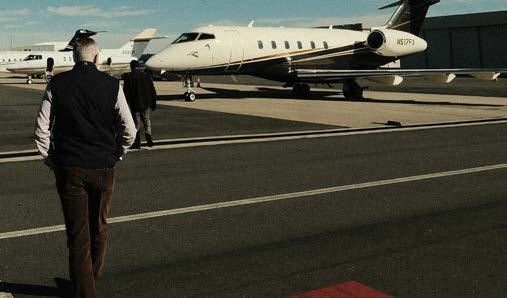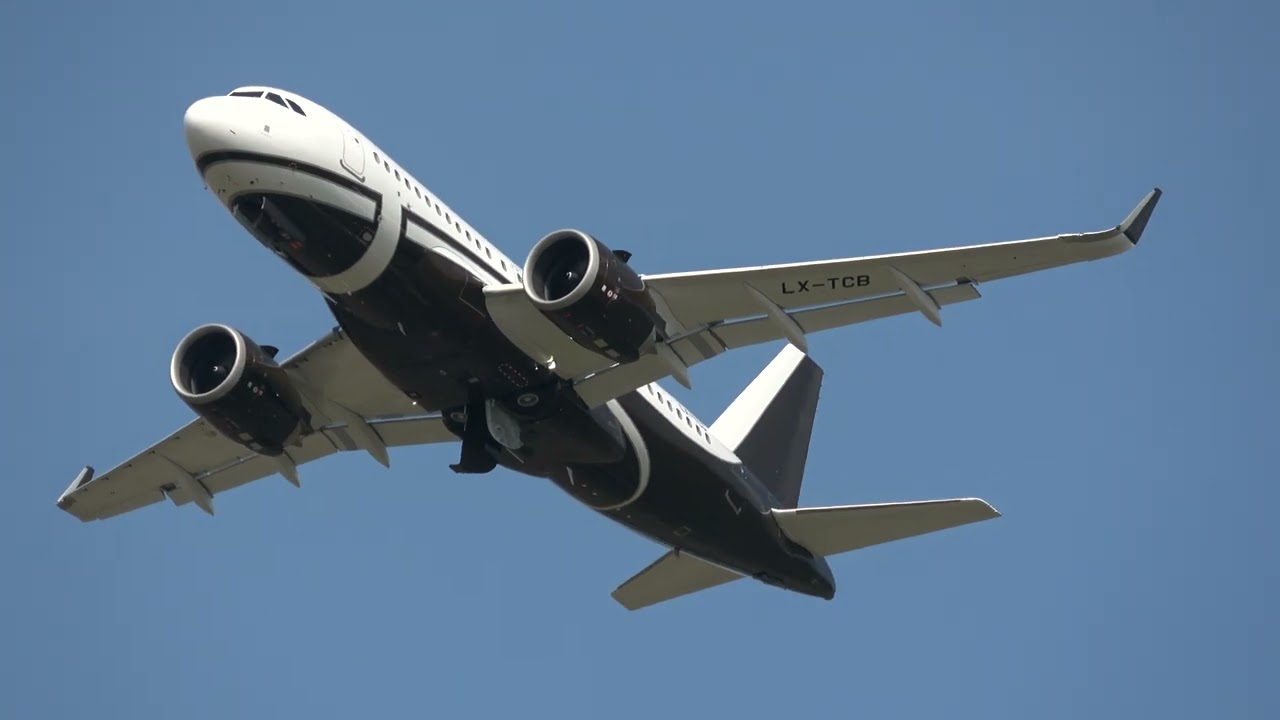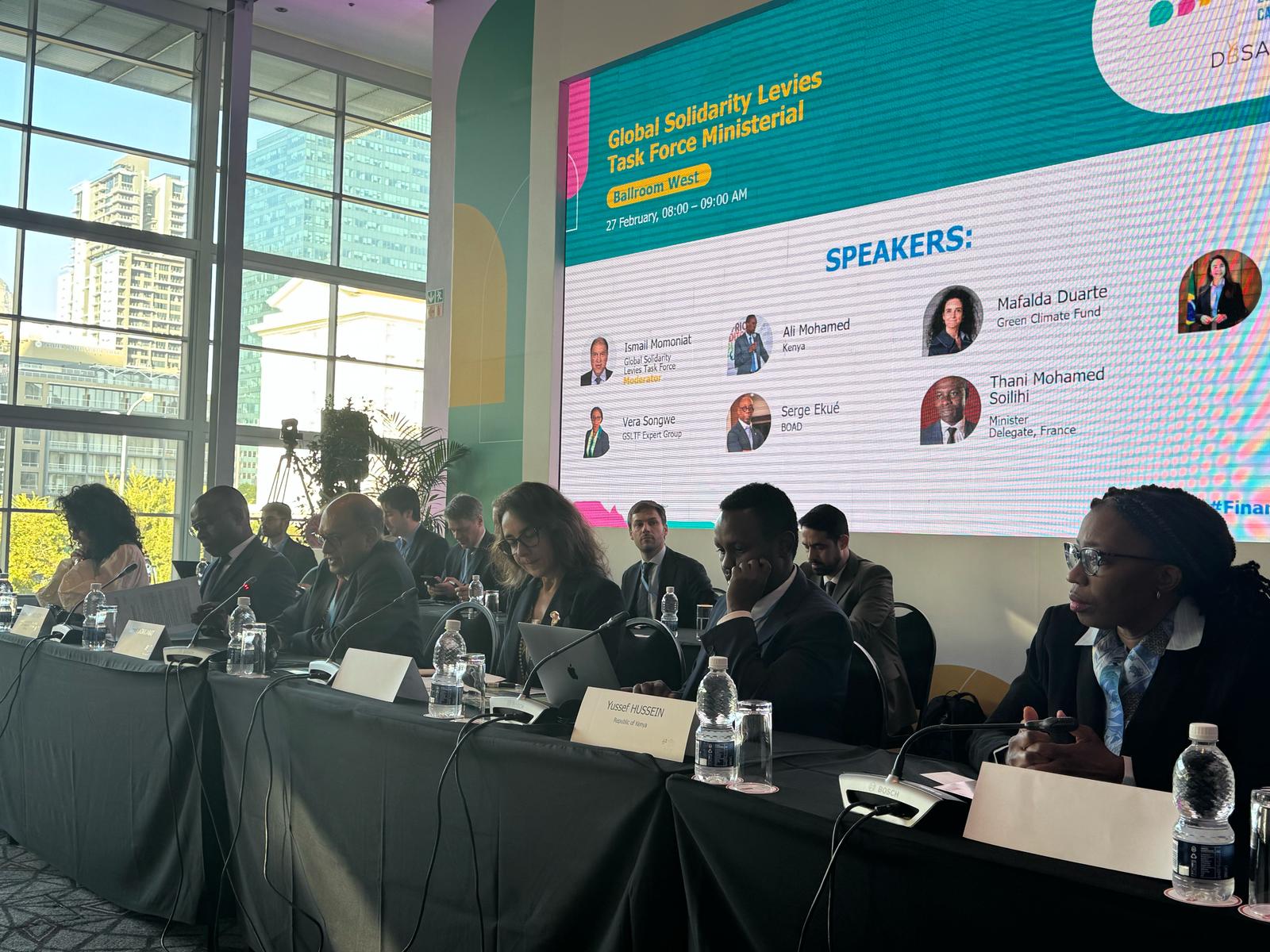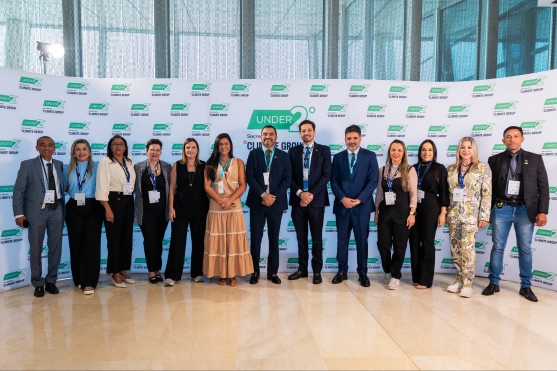Muungano wa Mshikamano wa Vipeperushi vya Juu Unakua
-Nchi zaidi zilitakiwa kujiunga kabla ya mwisho wa COP -
Tarehe 15 Novemba 2025, Belém - Leo, Kikosi Kazi cha Global Solidarity Levies (GSLTF) kilifanya Tukio lake la Ngazi ya Juu la COP30 kuhusu Kodi za Mshikamano huko Belém, Brazili.
Tukio hilo liliangazia dhamira ya kina kwa Muungano wa Mshikamano wa Vipeperushi vya Premium, ulioanzishwa hapo awali mnamo Juni huko Seville katika Mkutano wa 4 wa Kimataifa wa Ufadhili wa Maendeleo chini ya Jukwaa la Hatua la Sevilla.
Muungano huo sasa unajumuisha Benin, Djibouti, Ufaransa, Kenya, Nigeria, Sierra Leone, Somalia, Sudan Kusini na Uhispania na unaonyesha azimio letu la pamoja la kuendeleza ajenda hii. Pia tunakaribisha Antigua na Barbuda, Brazili, Fiji, na Vanuatu kama waangalizi, tukisisitiza dhamira inayoongezeka ya mbinu hii ya pamoja.
Laurence Tubiana, Mjumbe Maalum wa COP30 kwa Ulaya; Kiongozi Mwenza, Kikosi Kazi cha Global Solidarity Levies leo alisema:
"Uzinduzi wa Muungano wa Premium Flyers Solidarity Coalition unathibitisha kwamba ushuru wa mshikamano unaweza kutoka kwa mawazo hadi uhalisia. Hii ni hatua ya kwanza. Sasa natoa wito kwa nchi zaidi kuungana nasi katika COP30 na kugeuza kasi hii kuwa mabadiliko ya kudumu ya kimataifa."
Ripoti Mpya kuhusu Uwezo Usioweza Kutumika wa Kodi za Mshikamano, Mwongozo wa Kiutendaji kwa Serikali
Muungano wa Mshikamano wa Vipeperushi vya Premium unakusudiwa tu kuwa wa kwanza wa aina yake. Ramani ya Barabara ya Baku-to-Belém ilielezea hitaji la dharura la kuongeza ufadhili usio na deni na kutoa chaguzi kadhaa za ushuru. Kujengwa juu ya Ramani ya Barabara, sekretarieti ya Kikosi Kazi cha Global Solidarity Levies sasa ilichapisha ripoti yake ya hivi karibuni, Tyeye Untapped Uwezo wa Mshikamano Levies. Ripoti hiyo inaangazia mustakabali unaowezekana wa kazi ya Kikosi Kazi baada ya COP30, ikiweka mapendekezo kumi kuhusu ajenda ya baadaye ya ushuru wa mshikamano kuhusu mada ikiwa ni pamoja na mafuta ya kisukuku, miamala ya kifedha, usafiri wa anga, usafirishaji na sarafu za siri. Ripoti ni chombo madhubuti kwa serikali zinazoangalia katika kutekeleza Ramani ya Barabara ya Baku-to-Belém na kutekeleza wajibu wao wa kutoa na kuhamasisha ufadhili wa hali ya hewa.
Nukuu kutoka kwa Tukio la Kiwango cha Juu:
Amb. Ali Mohamed, Mjumbe Maalum wa Mabadiliko ya Tabianchi, Kenya alisema: "Mwaka mmoja baada ya kuweka lengo la bilioni $300, sote tunajua kwamba hii ni sehemu ndogo tu ya kile kinachohitajika. Huku fedha za umma zikiwa chini ya shinikizo na nchi zilizo hatarini haziwezi kuchukua madeni zaidi, ushuru wa mshikamano kwenye shughuli zinazotoa mapato mengi hutoa suluhisho la haki na faafu. Muungano wa Premium Flyers unaonyesha kwamba wale ambao wanaweza kulipa madeni kwa njia bora zaidi wanaweza kulipa deni la umma. inaashiria mwanzo wa enzi mpya, ambapo haki, usawa na mshikamano vitachagiza hatua za hali ya hewa.
Amb. Benoît Faraco, Balozi anayehusika na mazungumzo ya mabadiliko ya hali ya hewa, nishati isiyo na kaboni, na kuzuia hatari ya hali ya hewa, Ufaransa, alisema: "Kuna utambuzi wa wazi wa jukumu la ushuru wa mshikamano katika Ramani ya Barabara ya Baku-Belém, ni juu yetu sasa kutekeleza hili. Kipaumbele chetu kikuu sasa ni kupanua Premium Flyers Solidarity Coalition. Makubaliano juu ya utekelezaji wa Mkataba wa Paris, A 30 kuhusu Utekelezaji wa Mshikamano wa Paris. ushuru wa mshikamano unakamata moyo huo hasa.
Amb. Maria del Mar Fernandez-Palacios, Balozi wa Uhispania nchini Brazili alisema: "Nianze na ukumbusho kamili: tishio la utulivu wa ulimwengu ni la kweli, na tunahitaji fedha za haki, zinazotabirika, zisizo na madeni ambazo hazilemei raia wa kawaida. Ndio maana Uhispania inaungana na wengine katika kuendeleza tozo za mshikamano. Wale wanaochafua zaidi wanapaswa kuchangia zaidi, na ushuru kwa vipeperushi vya malipo, ustahimilivu wa hali ya hewa unaweza kuzalisha mabilioni tu ya mabadiliko ya hali ya hewa. lazima kupanua muungano huu, kufanyia kazi uwezekano mwingine na kuthibitisha kwamba ushirikiano wa pande nyingi bado unaweza kutoa.
Dini Omar, Katibu Mkuu wa Wizara ya Mazingira na Maendeleo Endelevu, Djibouti alisema: "Kwa Djibouti, uwezo wa kustahimili hali ya hewa hauwezi kutenganishwa na ustawi na usalama wetu, lakini rasilimali tulizonazo zinapungua sana na mikopo ya jadi inazidisha deni letu. Tunahitaji fedha za ziada, zinazotabirika, na zenye masharti nafuu. hatua ya kwanza yenye nguvu, na Djibouti inajivunia kusimama na wenyeviti wenza Ikiwa tuna nia ya dhati kuhusu kuwasilisha Ramani ya Barabara ya Baku–Belém kwa trilioni $1.3, sasa ni wakati wa nchi zote kujiunga.
Olamide Fagbuji, Msaidizi Maalum Mwandamizi wa Rais wa Nigeria kuhusu Teknolojia na Uendeshaji wa Hali ya Hewa alisema: "Jumuiya zetu hazipungukiwi na mawazo, bali ni rasilimali za kuzitambua. Ndiyo maana ushuru wa mshikamano ni muhimu. Nigeria inaunga mkono tozo za malipo ya juu kama njia ya haki na ya vitendo ya kuziba mapengo ya kukabiliana na hali ya hewa. Kwa Global South, hii si hisani—iko tayari kusaidia uwajibikaji wa kimataifa kuwa dhamira thabiti.
Amb. Ruleta Camacho Thomas, Balozi wa Hali ya Hewa, Antigua na Barbuda alisema: "Kwa mataifa ya visiwa vidogo kama Antigua na Barbuda, kila athari ya hali ya hewa inapoteza mapato ya umma na inatishia maendeleo yetu. Ustahimilivu sio chaguo kwetu - ni hali ya maisha yetu. Ndio maana vyanzo vipya vya fedha za kustahimili ni wajibu na muhimu. Tozo za mshikamano zinaweza kutoa hasara ya haraka, ustahimilivu na uharibifu unaohitajika."
Diana Acconcia, Mkurugenzi wa Masuala ya Kimataifa na Fedha ya Hali ya Hewa, Kurugenzi Mkuu wa Utekelezaji wa Hali ya Hewa wa Tume ya Ulaya alisema: "Ushuru wa Mshikamano unalingana na kanuni ya msingi ya EU ambayo wachafuzi wanapaswa kulipa. Ingawa EU inasalia kuwa mtoaji mkuu wa ufadhili wa hali ya hewa, tunajua vyanzo vipya ni muhimu - na lazima ziwafikie walio hatarini zaidi. Muungano huu unaonyesha kuwa nchi zilizoendelea na zinazoendelea zinaweza kuchangia katika hali tofauti za kisiasa katika hali tofauti za kisiasa na zinazoendelea zinaweza kuchangia katika hali tofauti za kisiasa na zinazoendelea. dunia iliyovunjika Tunafurahi kuendelea kuunga mkono juhudi hii.
Selwin Hart, Mshauri Maalum wa Katibu Mkuu wa Umoja wa Mataifa; Timu ya ASG, Climate Action Team ilisema: "Ikiwa COP hii imeweka wazi jambo lolote, ni kwamba muongo ujao lazima uwe wa kuongeza kasi inayotokana na fedha zisizo za madeni. Huku ulimwengu ukikabiliwa na kupindukia kwa muda wa 1.5°C, ushuru wa mshikamano hutoa njia ya haki, inayowezekana ya kukusanya mabilioni ya fedha za ruzuku na kuhakikisha kuwa wale walio na kiwango cha juu zaidi cha kaboni watachangia. kudumisha uwazi, na kufanya mshikamano kuwa jambo la kawaida katika ufadhili wa hali ya hewa."
Jennifer Morgan, Aliyekuwa Mjumbe Maalumu wa Kimataifa wa Hatua ya Kimataifa ya Hali ya Hewa, Ujerumani alisema: "Ripoti ya jopokazi inaweka wazi kwamba ushuru mdogo na wa haki unaweza kupanua zaidi ya usafiri wa anga. Kipaumbele chetu sasa ni kuleta serikali zaidi katika Muungano wa Premium Flyers huku tukichunguza uwezo kamili wa ushuru wa mshikamano, kutoka kwa nishati ya mafuta hadi miamala ya kifedha. Ingawa Shirika la Kimataifa la Usafiri wa Baharini (IMO) walijua kwamba kukosekana kwa usawa wa Bahari (IMO) walijua kwamba kukosekana kwa usawa wa Bahari (IMO) kunakua. kuwatoza ushuru mabilionea na ndege za kibinafsi ni sawa na lazima."
Amar Bhattacharya, Mshirika Mwandamizi, Uchumi na Maendeleo ya Ulimwenguni, Taasisi ya Brookings na mwanachama wa kikundi cha wataalamu wa GSLTF, alisema: "Ramani ya Baku hadi Belém iko wazi: tunahitaji trilioni $1.3 katika ufadhili wa hali ya hewa, ikijumuisha bilioni $350 katika fedha za masharti nafuu zisizo na madeni kwa ajili ya kukabiliana na hali hiyo, ustahimilivu, na hasara ya zaidi ya 50000000000000 na 300000000000000000000000000000 zaidi ya $ itagharimu $350 bilioni katika gharama ya $350 bila madeni kwa ajili ya kukabiliana na hali hiyo, ustahimilivu, na hasara ya zaidi ya 500000000000000 kwa $20. fedha huongezeka maradufu na ushirikiano wa Kusini-Kusini unakua, pengo la $160-170 bilioni linabaki, na hapo ndipo ushuru wa mshikamano unafaa.
Luiz Awazu Pereira da Silva, Economist, aliyekuwa Naibu Meneja Mkuu wa Benki ya Makazi ya Kimataifa (BIS) na mwanachama wa kikundi cha wataalamu wa GSLTF, alisema: "Kazi ya kiufundi inahakikisha idadi yetu ni thabiti. simulator inaonyesha kuwa kadiri muungano unavyokuwa mpana na jinsi muundo wa ushuru unavyokuwa wa haki ndivyo mapato yanavyoongezeka. Kwa mawazo yanayofaa, tozo za mshikamano zinaweza kutoa 10–30% ya trilioni $1.3 tunazohitaji—chanzo kikubwa na thabiti cha fedha za masharti nafuu kwa nchi zilizo hatarini. Sasa tuna mtindo thabiti, unaotegemea uchumi ili kuongoza hatua yetu.
Vidokezo kwa wahariri:
Kuhusu Kikosi Kazi cha Global Solidarity Levies
The Kikosi Kazi cha Global Solidarity Levies inaongozwa na Rais Macron, Rais Ruto na Waziri Mkuu Mottley. Ina jukumu la kubuni mapendekezo ya ushuru wa mshikamano kwa sekta zisizotozwa ushuru ambazo huchangia kwa njia isiyo sawa katika utoaji wa hewa ya kaboni duniani, hutozwa ushuru wa kutosha na kufaidika sana na utandawazi. Tozo hizi za mshikamano zinaweza kusaidia kutoa fedha kwa ajili ya hatua za hali ya hewa na maendeleo. Kikosi Kazi kiliundwa kufuatia Azimio la Hali ya Hewa la Nairobi, Mkataba wa Paris wa Watu na Sayari, na Mpango wa Bridgetown.
Wasiliana
Catherine Joppart: +32 491 64 37 35
Friederike Röder: +33786058478
Mahojiano yanaweza kupangwa kwa Kiingereza, Kifaransa na Kijerumani.
Uwezo Usioweza Kutumika wa Kodi za Mshikamano: Mapendekezo ya Mustakabali wa Hali ya Hewa na Fedha za Maendeleo.
Ripoti hii inatoa muhtasari wa kina wa chaguzi kuu za ushuru wa mshikamano: sera zenye uwezo mkubwa wa kuachilia mabilioni katika hali mpya ya hewa isiyo na madeni na fedha za maendeleo kwa nchi zinazoendelea.
Rasilimali za Cryptocurrency
Rasilimali za Kodi ya Miamala ya Kifedha
Rasilimali za Mafuta ya Kisukuku
Rasilimali Zaidi
Kwa maswali ya mahojiano kwa Kiingereza, Kifaransa au Kijerumani, tafadhali wasiliana na: [email protected].













